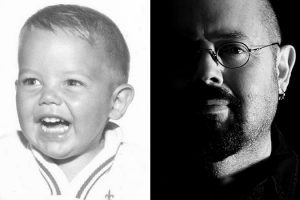Agents
Photograph by Anna Ty Bergman
David Corbett, here. I’m teaching at the History Writers of America Conference in Colonial Williamsburg, Virginia today, so I’m handing over this month’s post to a writer I very much admire, Hilary Davidson.
Before she became a full-time, award-winning, bestselling novelist, Hilary was a journalist, starting as an intern at Harper’s Magazine in New York then joining the staff of Canadian Living magazine in Toronto. After deciding that she’d rather write than edit, she left her day job to freelance full-time. That decision led her to write 18 nonfiction books and articles for wide array of publications.
Her debut novel, The Damage Done, won multiple awards for Best First Novel, and launched the Lily Moore series that continued with The Next One to Fall and Evil in All Its Disguises. Hilary’s first standalone thriller, Blood Always Tells, was published in 2014 and her latest novel is One Small Sacrifice, the bestselling first book in the Shadows of New York series. The next book in that series, Don’t Look Down, will be released in February 2020.
Hilary’s short stories have also won multiple awards and have appeared in a wide variety of outlets and anthologies; in 2013 she gathered some of her personal favorites for a collection called The Black Widow Club: Nine Tales of Obsession and Murder. (For more information about Hilary and her books, visit her website.)
I asked Hilary if she could provide our readers with some guidance on how to navigate the often perilous cross-currents of today’s publishing world. Turns out she had a very on-point story to tell about the need to take a leap of faith—in oneself.
SHOULD I STAY OR SHOULD I GO?
Growing up, there was nothing I loved reading more than advice columns. They were in newspapers and in magazines, and even in the tabloid papers my grandmother passed along to me. The most-asked question over the years was always some variant of, “My spouse is a good person, but we don’t see eye-to-eye on a lot of things or share the same values; I don’t know whether to stay or leave…” The usual response—unless the partner was engaging in truly terrible behavior—was that such feelings were normal and of course any sane person would stay.
Accept what you have, that was the message. Good enough is as good as it gets.
A few years ago, I found myself asking the same question, only it had nothing to do with love; it was about my career. I would be the first to admit that I’d had a fortunate start in publishing: I was represented by a well-established agent, published by a Big Five publisher, and my debut novel had won the Anthony Award for Best First Novel. Who wouldn’t be thrilled with that? But by the time I published my fourth novel, Blood Always Tells, I was looking at my career and wondering whether I needed to stay or leave.
To be clear, there are no villains in this story, and no one was doing me wrong. But […]
Read Morehttps://www.udemy.com/course/get-writing-keep-writing/
It’s fall! You know what that means–it’s submission season. My inbox has flooded with client requests to help shape their queries and synopses. I’ve been seeing many queries, in particular, with similar mistakes or less-than-optimal structuring so I thought I’d share my laundry list of what makes a query juicy, what to avoid, and a few other points to making your query a slam-dunk success.
WHAT’S IN A QUERY?
If your book is:
Read More
This happens more often than I’d like to admit: I’m sitting around with friends or acquaintances or random strangers, and the fact that I’m a writer comes up. (I never noticed before just how often people say, “What do you do for living?” until I started answering that question with “I’m a writer.”) From there the conversation usually moves to what genre I write, what I’ve published, when my next book is coming out, and then like a hand grenade tossed into my lap: “What’s your book about?”
I freeze. My brain sets off alarms that sound all over my body. Panic sets in. I try to buy time by saying, “Wellllll,” and “Uuuuummm,” and “Okay, sooooo.” My first book was published seven years ago, my fourth novel is coming in August, and this still happens every time someone asks me what my book is about. When I received a PR Q&A from my publisher with the question “what is your book about?” I may have yelled out loud, “Don’t you people have a whole sales department to tell me what my book is about?”
Part of this difficulty is related to many writers’ struggles with query letters and elevator pitches. After you’ve spent months or years crafting a complex and nuanced story, now you’re supposed to boil it down to a few sentences? I’m terrible at this in part for the same reason I write novels instead of flash fiction.
The other part of why this question is so hard for me is about the panic and how my brain responds to it. More than one person has suggested that I should just memorize my official pitch word for word. Sadly most of the time the panic wipes my brain clean, and all I can find in my Things I’ve Memorized file is a few random Bible verses and the Pledge of Allegiance. Even on the occasions when I successfully regurgitate what I’ve memorized, I just sound like a malfunctioning robot. If I’m supposed to be selling my book to potential readers, that is not the way to do it.
I wish I could tell you that I have found the solution to this problem, and that you can read about it after the jump, but the truth is I choked on my one and only attempt to pitch a novel to an agent in person twenty years ago, and I choked again this last week.
I was at a gathering of booksellers and inevitably I was asked the question about my forthcoming novel. Cue panic, followed by me opening my mouth and having a few hundred words fall out in no particular order. I’m here to tell you that this is not ideal, but it’s also not a complete catastrophe. After all The Princess Bride has been successfully selling itself with a pile of random words for many years: “Fencing. Fighting. Torture. Poison. True love. Hate. Revenge. Giants. Hunters. Bad men. Good men. Beautifulest ladies. Snakes. Spiders. Beasts of all natures and descriptions. Pain. Death. Brave men. Coward men. Strongest men. Chases. Escape. Lies. Truths. Passion. Miracles.”
All this to say that my wisdom is much more philosophical than practical. Over […]
Read MoreOn Thanksgiving, I celebrated 30 years since the sale of my first book. It’s a crazy milestone and made me consider this writing and publishing life with a sense of bemusement. To celebrate, I have collected 30 things I’ve learned in those three decades.
1. Persistence is more important than talent.
2. Be nice to everyone. It’s a very small world. The meek editorial assistant of today will one day be running the prestigious imprint you most want to break into.
3. No one actually knows what talent means.
4. Don’t compare yourself to others.
4. Don’t buy into your own press. There’s nothing more obnoxious than a writer who swans around in a perfume of her own self-importance.
5. Learning never stops—which is one of the best things about the writing game. No one can possibly understand all of it.
6. A great agent will be your best ally—and the relationship can last as long as a marriage. I’ve been with my agent Meg Ruley for 20 years.
7. A bad agent is worse than no agent at all—by far.
8. ALL writers need good editors. I plan to write an entire blog on this very subject in the near future—editors are enormously important to creating your best work, and creating those relationships can make you a much better writer. No book should enter the world without editorial eyes. Period.
9. Some books will do better than others for absolutely no reason you can fathom.
Read MoreFlickr Creative Commons: Amtec Photos
During the early days—correction, decade—of my writing career, before I had either an agent or a publishing deal, I often felt a kind of desperation. When would it finally be my turn? When would I see my work in print?
Would my day ever come?
I wrote, I researched agents and publishers, I pitched and queried, and—like everyone—I received rejections. Rejections upon rejections, until I almost dreaded opening my email for fear of finding another missive that began, “Although I enjoyed your work, I’m afraid I just didn’t love it quite enough to take a chance in this difficult market . . .”
At times I felt tempted to stop researching “fits” and simply adopt a shotgun approach in the hopes of finding any agent or publisher willing to take a chance on my stories.
Fortunately, twenty years of experience as a publishing lawyer stayed my hand. Because, despite the temptation, I knew that having no agent and no publishing deal is better than having a deal I would later regret.
The same is true for you.
Before signing a contract with an agent or publishing house, you must take off the emotional artist hat and evaluate the offer with a non-emotional, business manager’s eye. Consider every aspect of the deal. Does it make business sense? Does it fit your plans and desires for your overall career? For where you are now, and where you hope to go?
Beyond that, take the time to consider these important factors:
Read MorePlease welcome literary agent with Trident Media Group Mark Gottlieb to WU today, speaking about something most writers need to understand: How to write (and even verbally deliver) an effective hook.
More about Mark from his bio:
Mark attended Emerson College and was President of its Publishing Club, establishing the Wilde Press. After graduating with a degree in writing, literature & publishing, he began his career with Penguin’s VP. Mark’s first position at Publishers Marketplace’s #1-ranked literary agency, Trident Media Group, was in foreign rights. Mark was EA to Trident’s Chairman and ran the Audio Department. Mark is currently working with his own client list, helping to manage and grow author careers with the unique resources available to Trident. He has ranked #1 among Literary Agents on publishersmarketplace.com in Overall Deals and other categories.
Learn more about Mark on the Trident Media website HERE.
How to Write an Effective Hook
I offer up this article on hook writing, also known as the elevator pitch, to lend the reader a feel for comfortable writing and public speaking in the fashion of selling a book idea to an agent, editor or publisher.
First I would like to share some real hook examples I’ve worked on with clients that have recently sold to publishers to lend a sense of what goes into a knock-out hook.
LILY & KOSMO, pitched in the tradition of A TALE DARK & GRIMM, FLORA & ULYSSES, and ALL THE WRONG QUESTIONS, in which to join Kosmo’s “Spacetronauts,” an all-boy crew of child space cadets, aboard their floating tree house in the stars, a girl from Brooklyn must prove that she can hold her own among the galaxy’s unruliest rascals…along the way, she and another will evade the clutches of merciless minions, find themselves marooned in The Murky Way nebula, and ultimately face the vilest villain of all, “His Meanness” The Mean-Man of Morgo.
THE REMAINDERS, pitched as DARK PLACES meets GIRL WITH THE DRAGON TATTOO, in which the daughter of a famed serial killer is compelled to meet the husband of one of her imprisoned mother’s victims, only to find he was murdered—she is made the prime suspect and is forced to flee, knowing she has very little time to find the truth before the police—or the real murderer—gets to her first.
Social media @XplodingUnicorn leader James Breakwell’s ONLY DEAD ON THE INSIDE: A PARENT’S GUIDE FOR SURVIVING ZOMBIES, styled in the tradition of Max Brooks’s THE ZOMBIE SURVIVAL GUIDE and THE WORST-CASE SCENARIO SURVIVAL HANDBOOK, providing practical advice on how to raise happy, healthy children in the midst of the zombie apocalypse, by joining the genres of parenting advice books and undead survival manuals in an unholy union that is both ill-advised and long overdue—the narrator, an inept father of four young daughters, uses twisted logic, graphs with dubious data, and web comics that look like they were drawn by a toddler to teach families how to survive undead hordes.
The nuts and bolts of what makes for a great hook
Let’s dissect what goes into a knock-out hook. The above examples (children’s book, adult fiction and nonfiction) demonstrate the construction of […]
Read Morehttps://giphy.com/search/ronald-miller
I just attended the Writer’s Digest Conference and as always, I returned home tired and full of inspiration. But there’s something that has stuck in my mind that is nagging at me. Saturday afternoon, I was sitting in the lobby, chatting with several aspiring writers who had a lot of questions about the industry and genre categories among other things. At one point, I overheard a conversation between two attendees adjacent to me. One of the writers turns to another and says, “Isn’t this so great? I’ve met a lot of people, exchanged cards with them.” Etc. Etc. But the other person shrugged and said, “I guess, but I think it’s lame the way these things are all about sponging off of the wannabes to make a bunch of money.”
I couldn’t help but stare at this person.
All I could think was: sure, I suppose one could look at a conference that way. But I’m frowning, even as I type that. Maybe this person had received a bunch of rejections lately–or maybe they just drank a bottle of misery for breakfast. Either way, I was flabbergasted.
I guess this person doesn’t realize the pro authors who attend donate their time and hard-won knowledge, and they are rarely paid, yet they do it happily to give back, to help others succeed. I suppose this person assumes the conference generates a tremendous amount of money based on conference fees, but doesn’t grasp the extraordinary amount of money needed to put on a convention in midtown Manhattan.
I have to admit, this comment irritated me, and the fact that I felt compelled to write this post, I suppose, shows just how much. As I look back on my years at conferences, all I feel is gratitude. Gratitude for the many generous and knowledgeable people I’ve met. Gratitude for the opportunities to connect with professionals who directed me on my path to publication, and also guided me in my learning.
Oodles and oodles of gratitude.
In fact, in the spirit of gratitude, I’m going to break down the positives about attending a writer conference.
I have to begin with:
Read MoreI have written a lot about the value of collaborators in your creative work. How there is a difference between creating art for the sake of your own personal experience, and in wanting to share it with the world.
In working with hundreds and hundreds of writers, I often hear things like:
“An agent said they wanted to see me have at least 10,000 Twitter followers.”
Today, I would like to share my impression of what agents, publishers, and any collaborators want to see from you and why. If you do other types of creative work, this advice applies. Perhaps you are an artist who seeks a gallery show or a licensing deal; a musician who seeks a producer or label; an entrepreneur who seeks investors or a co-founder. All of the advice below is about how to help collaborators help you.
Now, I am not an agent. I’m not a publisher. I’m someone who works with authors & creative professionals to help them connect their work with an audience. So this is my interpretation after working with so many wonderful authors, agents, and publishers. But an agent or publisher may be reading this, and will want to clarify with their own feedback. I do not pretend to speak for them. My goal is only to try to give writers more clarity to understand how to be great collaborators.
Okay, let’s dig in…
Write an amazing book that resonates
This is always number one on the list.
Of course, the first thing that an agent or publisher values is an amazing book.
The only thing I would add here is this: they want to see something that resonates. How often have you read a super popular book, and said to yourself, “The writing here is crap.” Or “this is a rip off of 1,000 other stories.” Even if you are correct, the bottom line is: something about it resonated with a massive audience.
Read MoreAs writers, we are told about many rules we’re supposed to follow. Avoid adverbs. Don’t start with a prologue. Eschew the passive voice. Don’t use words like “eschew.” On the off chance that someone does say “eschew,” say “gesundheit!”
Okay, maybe not all of those are well-established rules, but the first few definitely are. And I have a problem with rules like these (to be fair, I have a lot of problems, as some of you likely have guessed). But today I’m going to write about the problem I have with one rule in particular: the one that says we should eschew (gesundheit!) the passive voice.
What it is (and what it ain’t)
First of all, what is the passive voice? It’s a way of constructing sentences where the subject has the action done to it, rather than performing the action. For example:
The treaty was signed by the two generals.
The most awesome post ever was written by Keith.
The egret was eaten by the alligator.
In each case, the action happened TO the subject of the sentence (treaty, post, egret).
By contrast, here are the same three sentences cast in the active voice:
The two generals signed the treaty.
Keith wrote the most awesome post ever.
The alligator ate the egret (and then sang, “Egrets? I’ve had a few,” in a surprisingly good Sinatra impression).
In each of these active-voice examples, the subject of the sentence (the generals, Keith, the alligator) is performing the action. Both sets of sentences say the same thing, but conventional wisdom maintains that the ones written in the active voice are stronger and more vigorous. If that increased strength and vigor is not immediately apparent, let’s find some better examples.
The boy closed the door.
The door was closed by the boy.
or, even worse:
I think most of us would agree the second sentence is pretty weak in both of those examples. If nothing else, the first sentences are definitely cleaner. So these are situations where the passive voice probably is the weaker choice. Similarly, there are plenty of instances where too much use of the passive voice can really de-energize – and often de-personalize – your writing.
So why am I opposed to the no-passive rule? First and foremost, because many people mistakenly tag sentences as passive that actually are not. Over the years that I’ve spent interacting with writers both online and in person, I’ve seen a lot of misunderstanding of what the passive voice is – and what it isn’t. So let’s take a quick quiz to see how well we understand this passive thing.
Read More- « Previous
- 1
- 2
- 3
- 4
- Next »





















